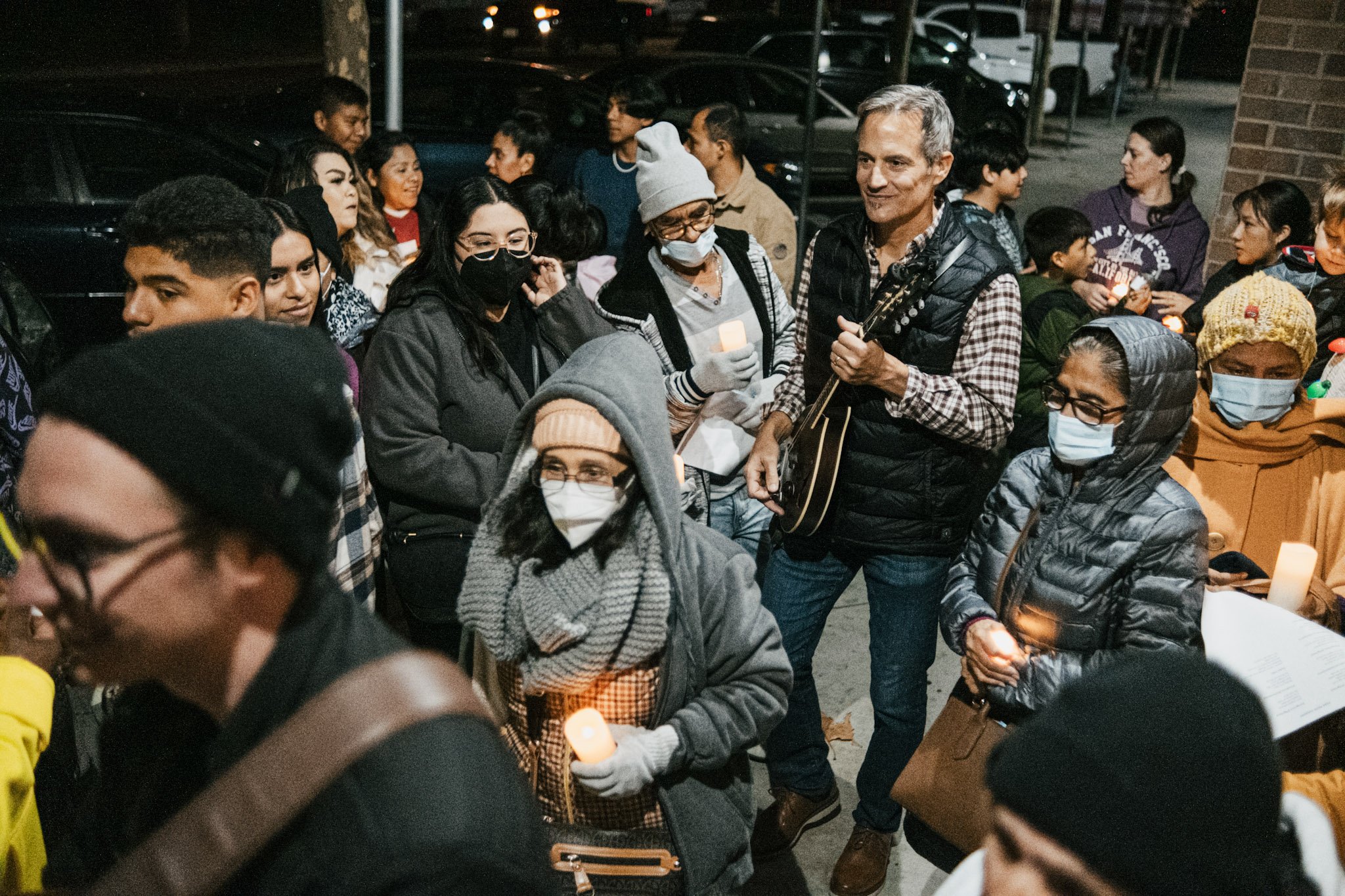Our Abbey
An abbey’s story was the story of the people that lived within its confines, and the people they loved in neighboring cities and towns. Abbeys weren’t all mountain-top monasteries where people wore funny robes and meditated all day. They weren’t churches planted far from cities so people could leave this world behind. So what were abbeys and why is it in our name?
Abbeys began as intentional communities embedded in particular places offering sanctuary and solitude for the weary. They were keepers of the faith; inheritors of a tradition; self-sustaining communities that utilized the skills of its inhabitants for the benefit of all. They were keenly aware of their neighbor’s needs and surplus from craftsmen, artisans, and bakers would be offered up freely for the well-being of neighbors.
Since we started, we’ve been asking, what would a modern day abbey look like in San Marcos, California? What would be some distinguishing features of people who were part of this community look like? How would the neighborhoods that these people worked and lived in be impacted by such a people?
We dream of such a place on earth as it is in heaven, where people, relationships, and communities are fully united with God, Father, Son, and Holy Spirit. Whole and at peace. The Bible’s word for this “being made whole/restoration” is “Shalom.”
And we think an abbey is a great way to embody this.
Our Vision
Our aim is to form unlikely friends into the friends of God, and join God in the restoration of all things.
We use this phrase to describe our community as it is and as we desire it to be. This invitation takes root first in the neighborhood where we are gathered for worship.
-
Unlikely- because the most profound friendship, God calling us friends, is about as unlikely as relationships get, so there are no bounds on who we might extend and receive the gift of friendship from. If God could overcome all of the obstacles that isolate us from Him and from one another, then the church is invited to be in the same process: engaging the social, ethnic, and economic barriers that divide us from one another by practicing genuine friendship.
-
Jesus, during his last time around the table with his disciples, took a moment to name the intimate relationship they all shared. The word Jesus used to describe this relationship was "friends." And he showed them what this kind of friendship looks like... sharing meals together, being patient with one another, forgiving each other, spending time together, and ultimately, being willing to sacrifice everything for the other. It may be that in our time, the word "friend" has lost its substance, but we want to reclaim it.
-
God's shalom isn't simply a "spiritual thing" but it's a peace that comes to bear on the sum of our lives, individual and corporate. Restoration is a yearning for community wholeness as we live into the prayer that Jesus taught us, "on earth as it is in heaven."
Our Team
The Abbey's staff and vestry is intentionally shaped by values of friendship, mutual learning, and shared leadership. Our team is committed to the unique opportunities (and challenges!) that emerge from bi-vocational ministry.
-

Rev. Matthew Veling
Co-Rector
-

Rev. Kerry Crockett
Pastor of Belonging
-

Rev. Alex Aguas
Co-Rector
-

Rev. Vania Gomez
Pastor of Early Formation
-

Matt Calio
Music Director
-

Rev. Tony Baron
Pastor Emeritus
-

Jen Schmidt
Artist in Residence
-

Richie Moreno
Vestry
-

Kristy Howden
Vestry
-
Kim Imhoff
Vestry
-
Joni Hall
Vestry
Churches for the Sake of Others
We are a part of a network of Christian communities called Churches For the Sake of Others (C4SO).
C4SO recognizes that we live in a highly disconnected culture that is successful at efficiently isolating people. In such a culture, " ...We envision incarnational ministry that is relational and accessible, as we invite others to 'come and see'…'come and receive.' We want to provide a place to truly connect and belong, which sometimes happens before people believe. Finally, we identify where God is at work and join him there, which requires paying close attention to his activity, often demonstrated in unexpected places and ways."
Our Beliefs
The word “creed” comes from the Latin credo, meaning “I believe.” The Church historically has two foundational creeds, or guiding statements of beliefs about God, the Apostles’ Creed and the Nicene Creed.
In professing these creeds, we join Christians across the world and throughout the ages in affirming our faith in the one God who created us, companions us, and restores us.
As a community rooted in the Anglican inheritance, we find wisdom in the ancient latin phrase Lex Orandi, Lex Credendi. Loosely meaning “the shape of worship and prayer shapes beliefs,” this idea gets at the core of not just who we worship, but that how we go about worshipping is central to revealing what we really believe to be true.









